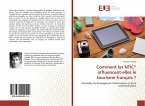Both organisations and individuals are using more collaborative work, across geographic, disciplinary and organisational boundaries, leading to increased demand for Information and Communication Technologies (ICT) to support a more effective and efficient online collaboration. This thesis presents an empirical study exploring various aspects related to collaborative distance in the context of innovation projects. It focuses on the investigation of issues related to distance factors that affect collaboration effectiveness and efficiency. This empirical study aims to enlarge the academic understanding of distance factors by disambiguating their description and deciphering their role in the collaboration process, and clarifying the reasons for the use and improvement of collaboration technology for overcoming collaborative distances. It confirms that distance factors raise collaboration barriers, and reveals that they disturb the collaboration mechanics by hindering knowledge workers capacity to reach a mutual understanding. These findings have deep implications for the future enhancement of collaboration technology to fill the current gaps in online collaboration (eCollaboration).
Bitte wählen Sie Ihr Anliegen aus.
Rechnungen
Retourenschein anfordern
Bestellstatus
Storno








